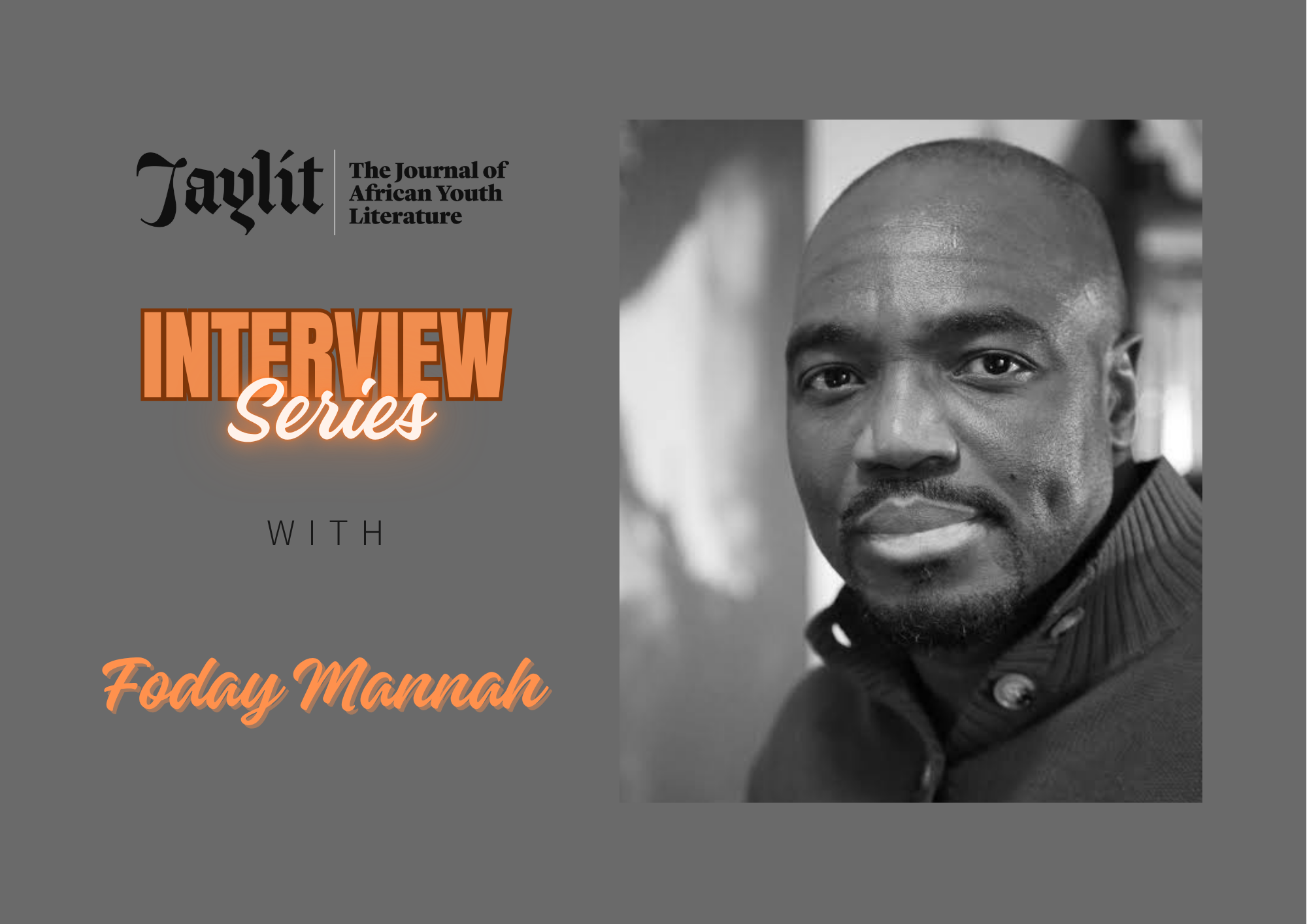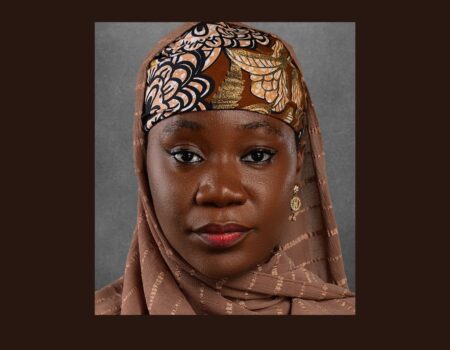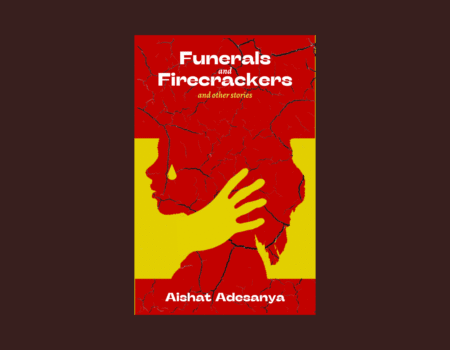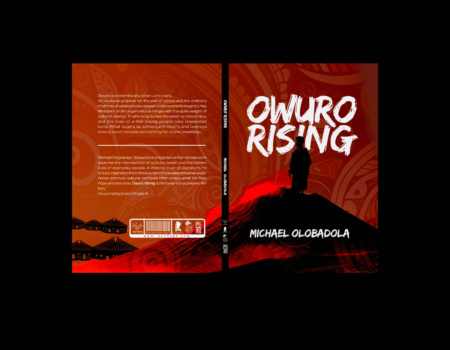IBRAHIM
Welcome, Foday! It’s a pleasure to have you here. You’re a writer who also works as a teacher. How do these two endeavours rub off on each other? Does one make the other better and vice versa? From the lenses of these two practices, how would you describe yourself as a creative?
FODAY
Thanks for having me, Chief Ibrahim, and hope all’s well. Teaching and indeed studying English exposes you to a wide range and array of literature, which naturally improves your own craft as you constantly find inspiration and angles to do with themes concerning life and the world we live in. As a creative, I try to provide a lens and voice to things that I have experienced and observed.

IBRAHIM
How did it all begin for you? Writing, I mean.
FODAY
My origins are in non-fiction, I would say. Whilst in boarding school in Sierra Leone, we established a newspaper in our sixth year. However, the term’ newspaper’ is actually a misnomer, as our efforts were rudimentary to the extreme, consisting of handwritten articles on large pieces of paper, which were then pinned on notice boards for all to read. Our articles in the main were light, focusing on exposing loose scandals involving fellow pupils, although we often focused on the civil war affecting our country at the time, and wider global politics and entertainment. This morphed into creative writing when I became a teacher in Scotland, reflecting on my experiences in Sierra Leone, whilst also exploring issues that affected us Africans in the diaspora.
IBRAHIM
Your stories have been published in reputable platforms like Wasafiri, Doek!, The Decolonial Passage, Iskanchi, The Feminist Food Journal, and The Other Side of Hope. How would you describe your writing to someone who has never encountered it?
FODAY
I would say my writing is ride-ranging and loose with regards to themes and concerns. I especially like examining the nature of power — both domestic and political. I’ve also tried to explore our rich African folklore and traditions, which make for fascinating source material with regard to creative writing. Political corruption, the immigrant experience, gender inequality, religion, civil war, violence, etc., have therefore all featured in my writing.
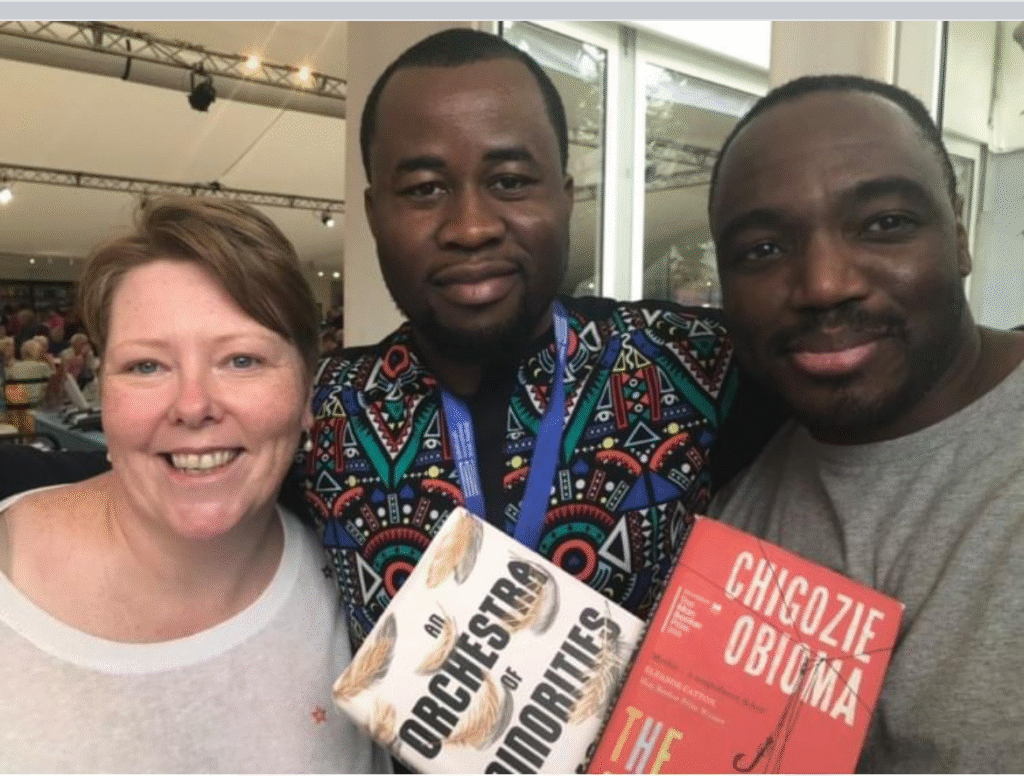
IBRAHIM
You’ve also graced reputable lists for prestigious prizes like the Bristol Short Story Prize, the Commonwealth Short Story Prize, the Bridport Short Story Prize, the Sean O’Faolain Short Story Prize, the Brick Lane Short Story Prize, and the Queen Mary Wasafiri New Writing Prize. How does this motivate or inspire you as a writer?
FODAY
I saw competitions as a litmus test with regards to my writing in the sense that they were loosely democratic, with regards to the fact that they were often judged anonymously. Relative success in quite a few of these competitions provided some form of validation, especially as different pieces excelled in different competitions. It is also reassuring to see several big names in the industry who similarly trod the competition path before achieving wider success and recognition. I would therefore advise writers to enter competitions freely; there’s nothing to lose, except, of course, a little payment from time to time 🙂.

IBRAHIM
What is your biggest, or most recurrent inspiration for writing stories?
FODAY
Widening the African voice within a more diverse thematic template. I believe that we are often limited to exploring big issues of historical significance; think slavery, Jim Crow, racism, immigration, and civil war. I, however, believe that themes and genres should not be mutually exclusive, and that we can explore and examine these themes within crime, fantasy, children’s literature, etc. I’m seeing this shift being replicated in movies, music, etc., which is very encouraging; think about Marvel’s “Black Panther” for example, which on one level is a rip-roaring typical superhero movie, whilst also, on another level, examining colonial exploitation, race relations, etc.
IBRAHIM
What’s your writing process like? Are you a planner or a pantser—are you one of those writers who plot and plan meticulously, or do you just go with the flow?
FODAY
My process is very loose and disjointed, Chief Ibrahim. As a teacher, July is usually what I call my “sacred writing month” as it is the only time of the year when I do not have teaching commitments due to summer holidays. Apart from that, it is a case of finding slivers of time here and there; in the evenings after work, on weekends, etc.
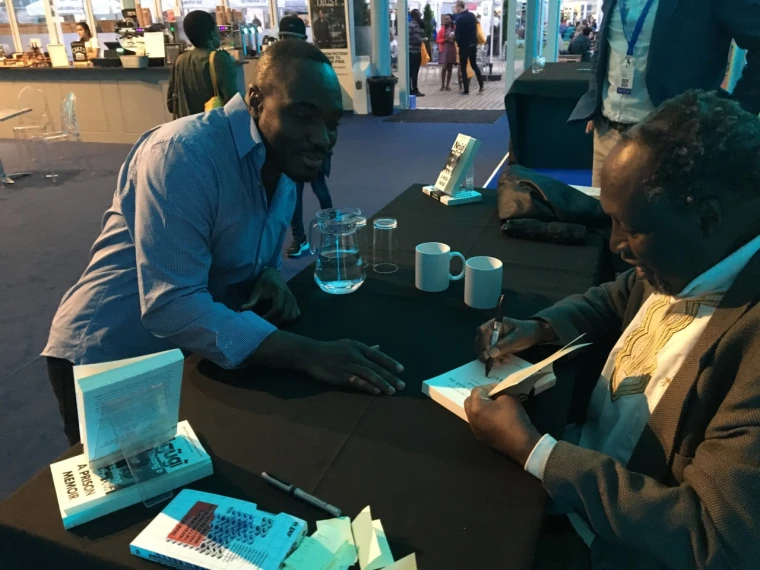
And I believe in constantly moulding and changing pieces until they find a home in, say, for example, a magazine, anthology, etc. I also share pieces with a couple of other writers, providing reciprocal critiques. Always good to see your writing through the eyes of someone else.
IBRAHIM
Do you dabble into other forms of creative writing, or creative art generally?
FODAY
Loosely. Have cobbled together a few poems. I am in awe of poets, and the ability to convey such depth and thematic weight within a comparatively smaller space is incredibly fascinating.
IBRAHIM
Let’s talk about your debut novel, THE SEARCH FOR OTHELLA SAVAGE. It won the Mo Siewcharran Prize in 2022 and has just been published by Quercus this May 2025. What was the inspiration behind it, and how was the process of writing it?
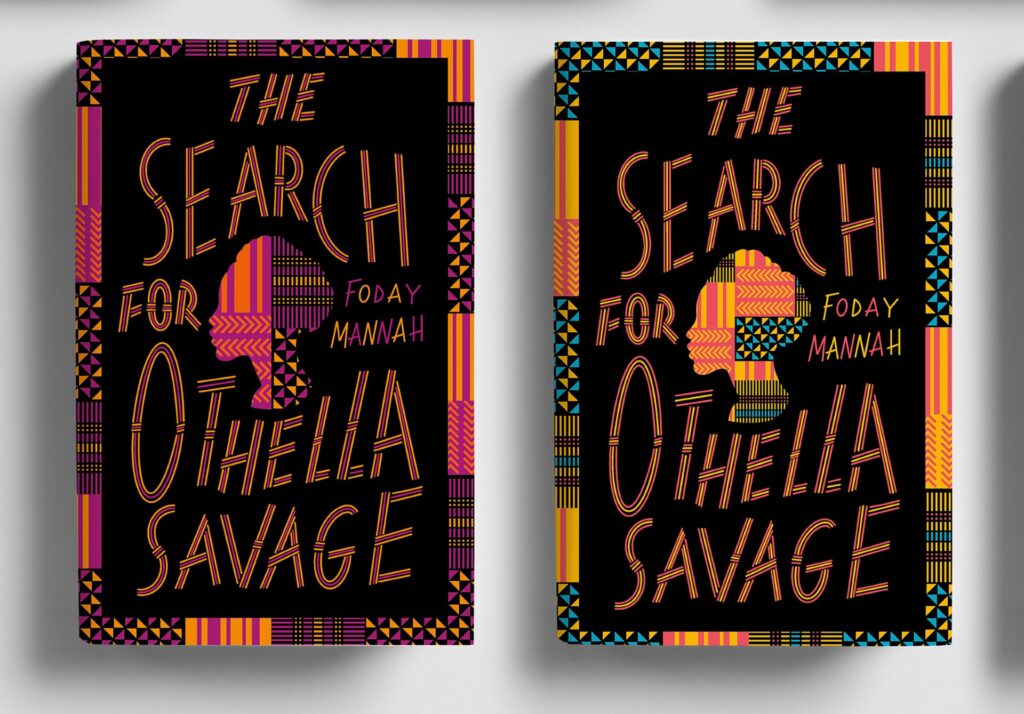
FODAY
Again, it was produced in response to a request for a crime novel for BIPOC writers, with the belief that people from our background do not regularly write in that genre. There was the real-life harrowing case of a nurse who was abducted from her home and locked in the boot of her car. I used this as a foundation to also explore political and religious corruption within our societies, with particular focus on the exploitation and abuse of our women.
IBRAHIM
How has this book transformed your writing career since the 2022 win?
FODAY
The Mo Siewcharran Prize provided a platform and opened the door to publication. I had spent over a decade since completing my writing degree trying to get agent representation and subsequently publication on a novel that focused on the debilitating civil war that plagued Sierra Leone during my youth to no avail.

The Search for Othella Savage has therefore allowed me to explore some big themes affecting Africa within the context of a crime/thriller novel, thereby emphasising my earlier point of themes not being mutually exclusive.
IBRAHIM
You were born in the UK, spent your formative years in Sierra Leone, and now live in the UK. As an African telling African stories, how does being relative to multiple places influence the stories you tell?
FODAY
I see myself as a coin with two sides, which provides me with a unique advantage of being able to see issues from a dual perspective. This duality informs several things that I write — indeed, the novel “Othella Savage” is specifically set in both Sierra Leone and Scotland, thereby throwing light on the lives of Africans within both of these culturally rich and diverse spaces.
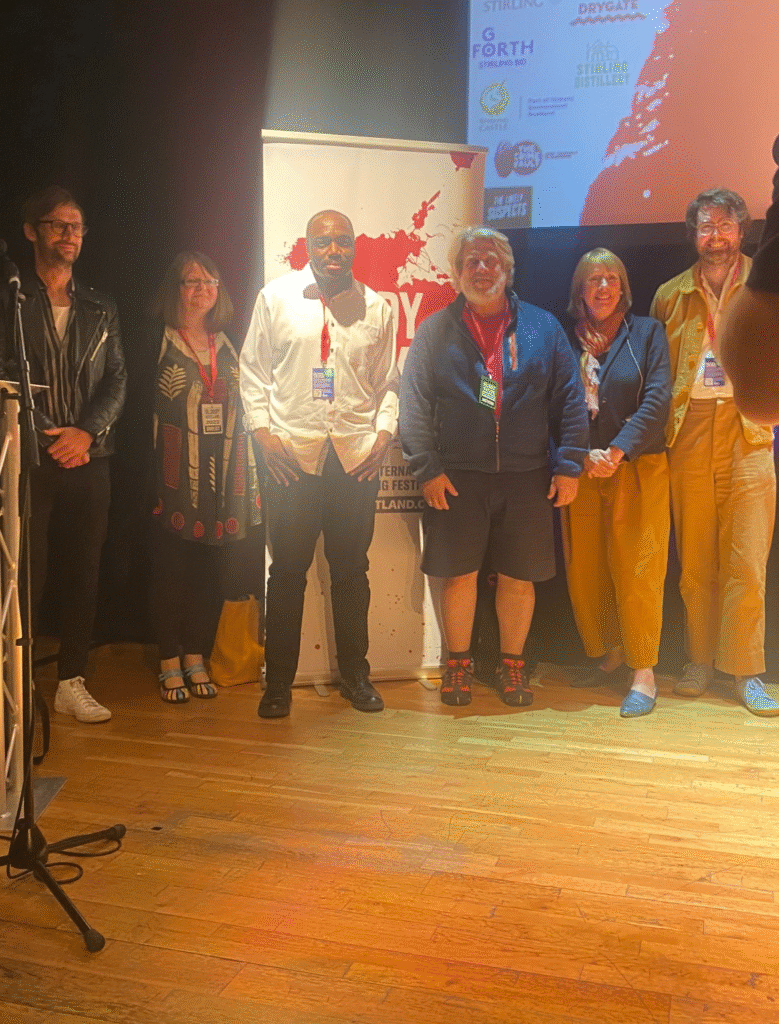
IBRAHIM
I believe the myth that Africans don’t read is dying a natural death, but the truth is we’re plagued with many things that do not help our reading culture. What’s your opinion of the present literary infrastructure in Africa, and how do you imagine things can get better?
FODAY
As a teacher, I see the same problems out here in Scotland, with regards to an alarming decline in a culture of reading; social media, and an unhealthy over-reliance on phones and technology. Society seems more obsessed with a culture of posturing and preening, with reading therefore being relegated to the margins. I still, however, believe there is hope, especially as education is still held in high esteem in African cultures.
IBRAHIM
Writing is a lonely business, but not very much when you have a community of other writers, editors, etc. What would you say has been the singular most important spurring-on factor in your writing?
FODAY
The basic joy and enjoyment of reading and writing. You are constantly in contact with phenomenal and diverse creations, which in turn inspire and spur you on. Working as an English teacher also gives you a ready-made collection of similar-minded people who delight in literature.
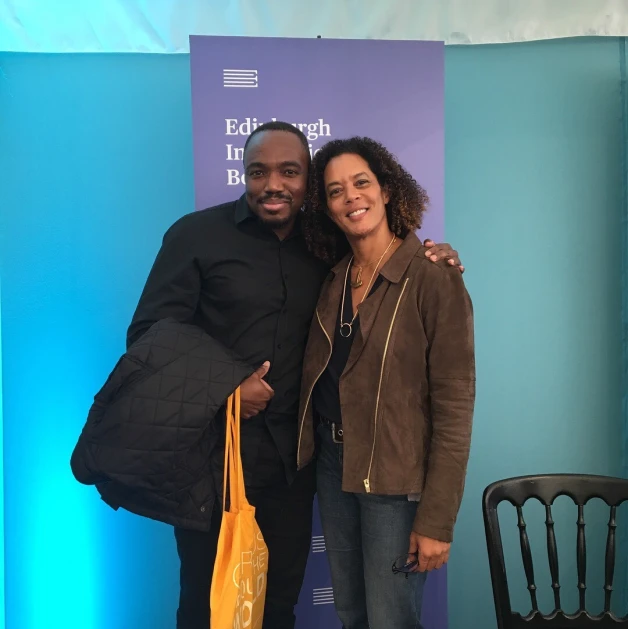
IBRAHIM
What are you working on at the moment? What should your readers be looking forward to?
FODAY
My humble civil war piece, which was completed a while back ☺️. Hopefully, I should now have a foundation to make it available to readers.
IBRAHIM
What is the best writing advice you’ve ever gotten? Something you wish you had known earlier when starting out as a writer?
FODAY
Be free. Be humble. Write as if nobody is watching you. Don’t be too precious about setbacks and criticisms. Never destroy what you write; collate and collect skimmed-off and discarded pieces in a separate document, as they could form the foundation for future pieces.
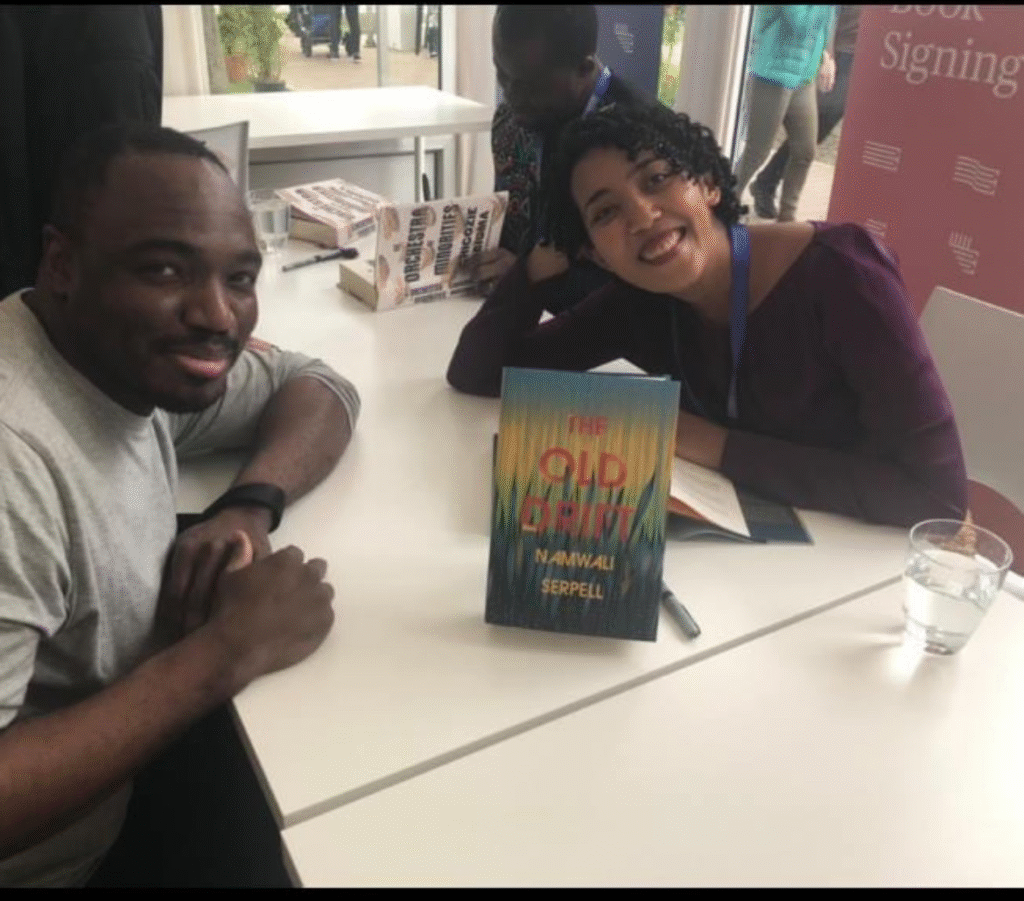
IBRAHIM
If you weren’t writing or working as a teacher, in an alternate world that is, what other things could you have found fulfilment in? Surprise us please (laughs)
FODAY
Perhaps a football coach ☺️! I’m fascinated with the game, although I was useless as a player; however, whilst in high school, I was a very useful coach in my 6th year, achieving impressive success. Pep Guardiola better watch out!
IBRAHIM
Are there any young African writers who are impressing you at the moment? Someone you’d recommend for us to look out for. They don’t have to be known. We could be meeting them for the first time through you.

FODAY
Oh, so many Chief Ibrahim. I think we sometimes, as a continent, get stuck studying our icons: Chinua Achebe, Ngugi, Mongo Beti, etc. Their noble traditions have been carried on by some phenomenal writers from the continent and beyond: Maaza Mengiste, Chimamanda Adichie, Chigozie Obioma, Damon Galgut, Bernardine Evaristo, Candice Carty Williams, Kit de Waal, Mubanga Kalimamukwento, Imbolo Ebue, Colson Whitehead, Percival Everett, S.A. Cosby. I could go on; so many phenomenal writers out there. Whilst all of the above are not African per se, their writing, however, has a direct connection to our experiences.
IBRAHIM
Thank you very much for your time and honesty.
FODAY
Thanks for having me. It has been a pleasure and an honour. Stay safe and have a lovely day.




